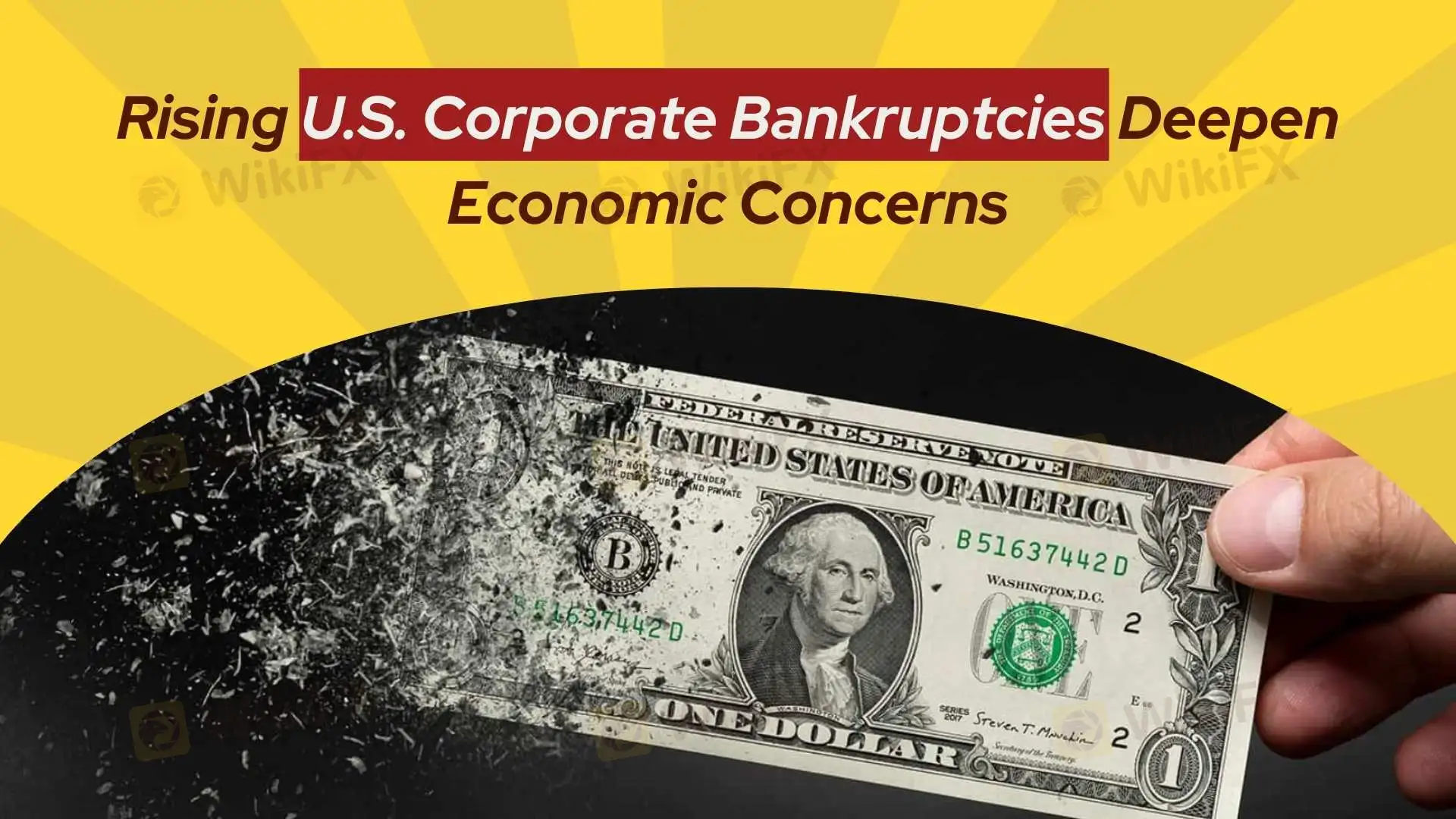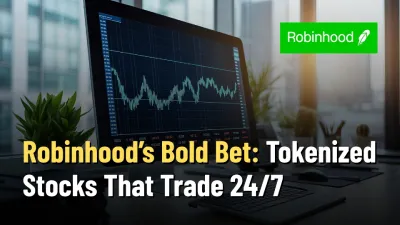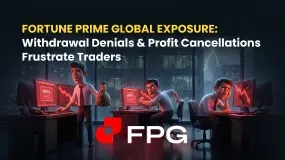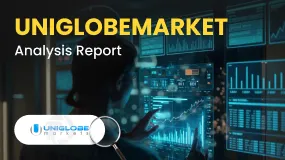Robinhood’s Bold Bet: Tokenized Stocks That Trade 24/7
Robinhood is reinventing stock trading with tokenized, 24/7 equities on the blockchain—ending settlement delays and redefining how markets move.
简体中文
繁體中文
English
Pусский
日本語
ภาษาไทย
Tiếng Việt
Bahasa Indonesia
Español
हिन्दी
Filippiiniläinen
Français
Deutsch
Português
Türkçe
한국어
العربية
Abstract:In 2024, 686 U.S. companies filed for bankruptcy, marking the highest number since 2010.

In 2024, a total of 686 U.S. companies filed for bankruptcy, marking an 8% year-on-year increase and reaching the highest number since 2010, when 828 companies filed. According to data from S&P Global Market Intelligence, this surge underscores the compounding effects of economic slowdown and corporate financial struggles, revealing deep challenges to economic recovery.

Among the bankruptcies, at least 30 companies carried debt exceeding $1 billion, spanning multiple industries. Party City‘s bankruptcy highlighted the struggles of the retail sector under weak demand and rising costs, while Tupperware’s crisis symbolized the shrinking household goods market. Red Lobsters insolvency further underscored the profitability challenges in the service sector, particularly in the restaurant industry, amid inflationary pressures.
A review of recent corporate bankruptcy filings reveals a clear acceleration in the trend. From 2021 to 2022, U.S. corporate bankruptcies totaled 777. This number jumped to 636 in 2023 and has already reached 686 in 2024, reflecting a rapid year-over-year increase.

Fitch Ratings also reported that in 2024, out-of-court restructurings outnumbered bankruptcies at a ratio of approximately 2:1. However, recovery rates for first-lien loans issued by companies with over $100 million in debt fell to their lowest levels since 2016, indicating rising risk exposure for creditors and heightened concerns about financial system stability.
The wave of corporate bankruptcies is largely driven by sluggish consumer demand. EY Chief Economist Gregory Daco noted that rising costs for goods and services are suppressing consumer spending, particularly impacting middle- and low-income households. This trend extends beyond specific industries, affecting retail, services, and manufacturing broadly. Consumers are becoming more cautious, cutting back on non-essential expenses, while businesses face both weak demand and rising supply chain costs.
Meanwhile, the high-interest-rate environment has increased corporate debt burdens, contributing significantly to the bankruptcy surge. Although the Federal Reserve has begun easing rates to relieve financial pressures, its planned 50-basis-point cut in 2025 is unlikely to fully alleviate the financial strain on businesses. Many companies, caught between maturing debt and rising financing costs, are losing the ability to sustain operations.
Corporate bankruptcies represent more than just individual financial failures—they can trigger ripple effects with broad economic and social consequences. Economically, a wave of bankruptcies weakens market competitiveness and productivity. The insolvency of iconic companies in certain industries can further erode investor confidence and market stability.
Socially, bankruptcies have a significant impact on employment. While overall U.S. Unemployment remains relatively low, localized crises in specific industries and regions may arise from widespread corporate failures. Moreover, declining consumer confidence could further slow economic recovery.
Despite its apparent risks, the bankruptcy wave could present opportunities for some companies to reset their strategies. Through out-of-court restructurings or bankruptcy protection, businesses may reduce debt burdens and optimize operations, laying a foundation for future recovery. However, for creditors and investors, the uncertainties involved in this process pose significant risks.
Looking ahead, whether the U.S. economy can emerge from the bankruptcy wave amid high interest rates and inflationary pressures will depend on several factors. These include the Federal Reserve‘s ability to balance inflation control with lower funding costs, potential government fiscal policies to support businesses, and the market’s capacity to drive growth through innovation and industrial transformation.
Disclaimer:
The views in this article only represent the author's personal views, and do not constitute investment advice on this platform. This platform does not guarantee the accuracy, completeness and timeliness of the information in the article, and will not be liable for any loss caused by the use of or reliance on the information in the article.

Robinhood is reinventing stock trading with tokenized, 24/7 equities on the blockchain—ending settlement delays and redefining how markets move.

Does Pemaxx prevent you from withdrawing funds once you make profits? Has the Mauritius-based forex broker disabled your trading account upon your withdrawal request? Do you fail to withdraw funds despite meeting the trading lot requirements? These scam-like trading activities have allegedly become a part of the broker’s operation, as many traders have complained about them online. In this Pemaxx review article, we have highlighted their comments against the forex broker. Keep reading!

Did Fortune Prime Global deduct all your profits by accusing you of market manipulation? Are you struggling to access withdrawals for months? Has the forex broker disabled your forex trading account upon the withdrawal application? Does the broker stipulate tax payments as a condition for fund withdrawals? You are not alone! In this Fortune Prime Global review article, we have highlighted these complaints. Read on!

UNIGLOBEMARKET presents a mixed picture that demands careful consideration from prospective traders, earning an overall rating of 5.5 out of 10 with a "Use with Caution" designation. Based on 55 trader reviews, the broker shows a concerning 40% negative rate, though it's worth noting that positive reviews still outnumber negative ones with 31 favorable assessments compared to 22 unfavorable ones. Read on for an insightful review.
